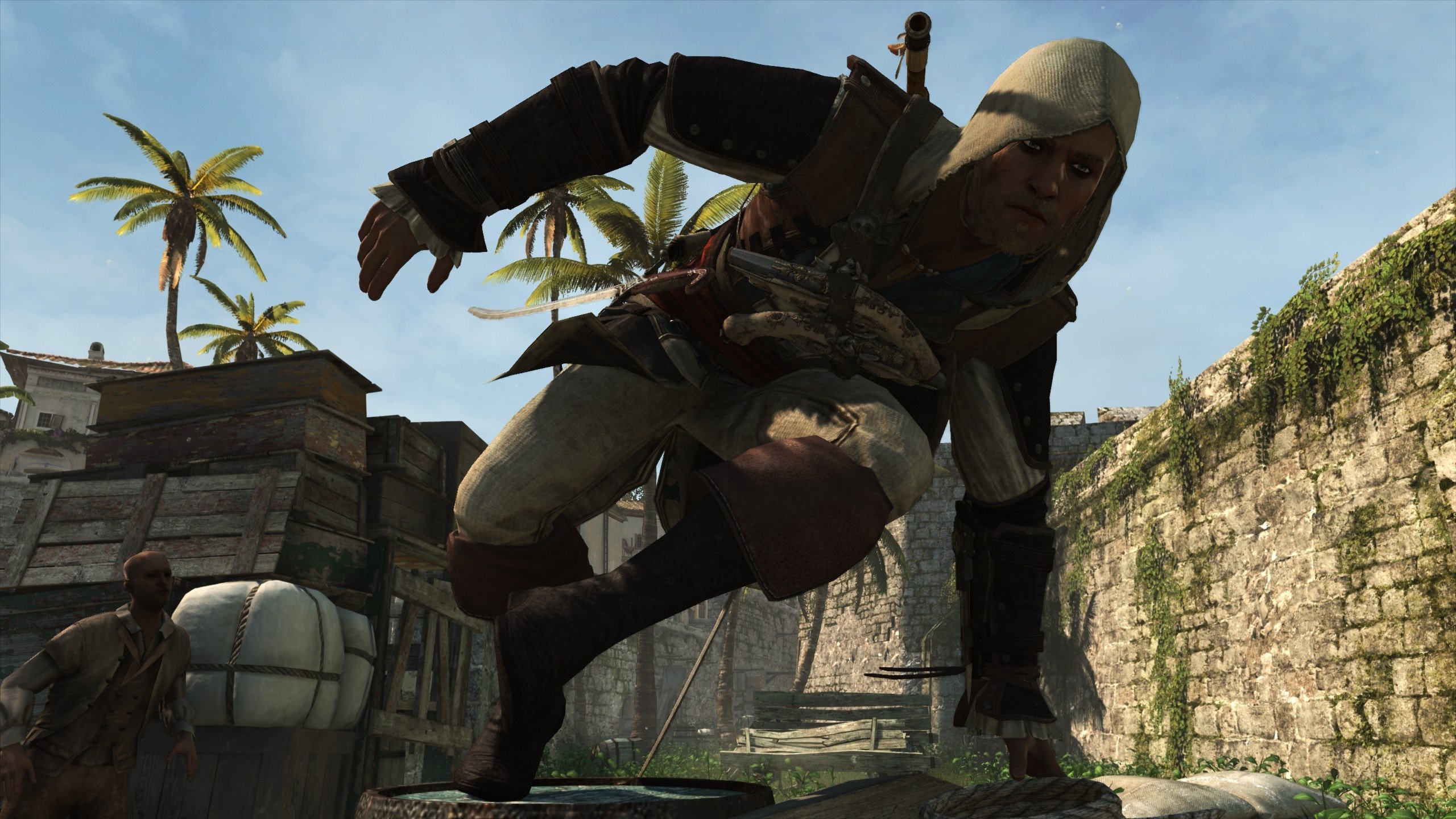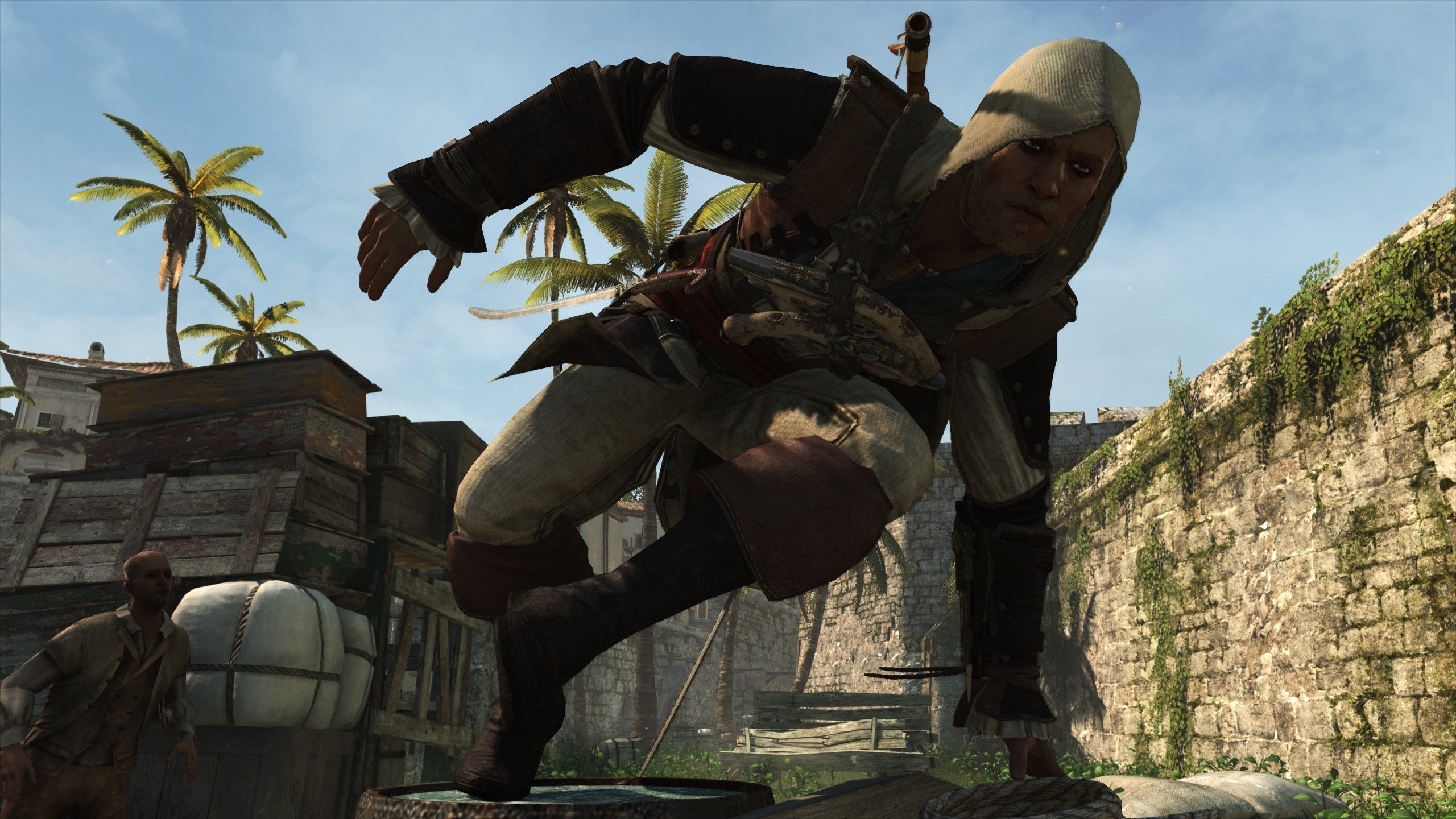
At this point, Ubisoft might as well go ahead and confirm that a remake of Assassin’s Creed IV: Black Flag is in development.
When a video game is shown or not seen in a well-known retailer, its devoted following may get curious and occasionally concerned.
Recently, one of the most well-liked games in the series, Assassin’s Creed IV: Black Flag, mysteriously vanished from the Steam library during a large discount on a number of titles, including the Assassin’s Creed franchise. Moreover, it vanished from the Ubisoft app as well, which begs the question of why this would be the case.
The PC edition of Assassin’s Creed IV: Black Flag has been plagued by technical issues for the past year, which is unacceptable for a game that is already ten years old. The difficulties are mostly related to server issues that keep players from accessing more content. There may have been certain glitches in the game’s user experience, which led to its temporary removal from these platforms.
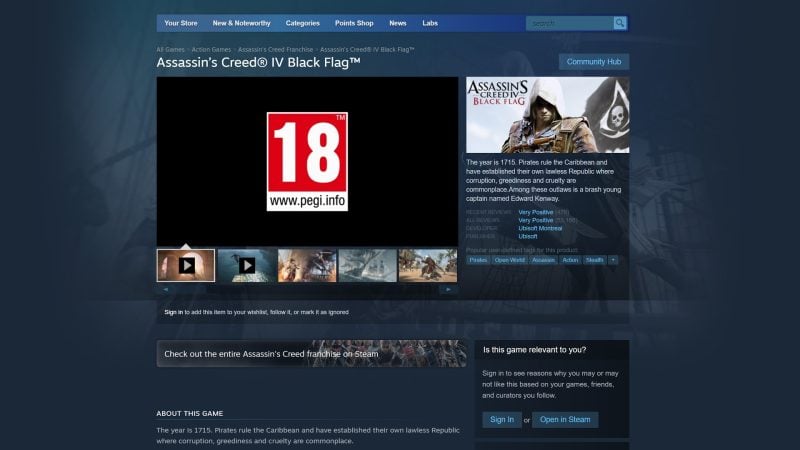
However, Ubisoft still offers the game for direct purchase. This could mean that the Ubisoft app and Steam removal are only temporary. These platforms are, after all, more well-known retail locations with significantly higher traffic than the Ubisoft store. Before releasing the game to a larger audience once more, Ubisoft might wish to fix its problems.
Video game digital ownership is a complex idea. Frequently, when gamers buy a game online, what they’re really getting is a license that allows them to “rent” and play the game rather than actually owning it. As a result, publishers are still able to cancel these licenses, but they don’t take this authority lightly. Reputable publishers value the loyalty and trust of their user base, and they rarely remove access to games without good cause.
This begs the question: Is the removal a sign of anything more significant? Previously, titles such as The Elder Scrolls V: Skyrim and the first three Grand Theft Auto games were pulled off store shelves and then re-released, sometimes with new content and sometimes in a remastered edition.
Thus, is Assassin’s Creed IV: Black Flag about to undergo a redesign?
We have learned about speculations regarding the upcoming modern reprinting of Edward Kenway’s daring escapades. If nothing else, this might lessen the impact of Skull & Bones suffering yet another delay.
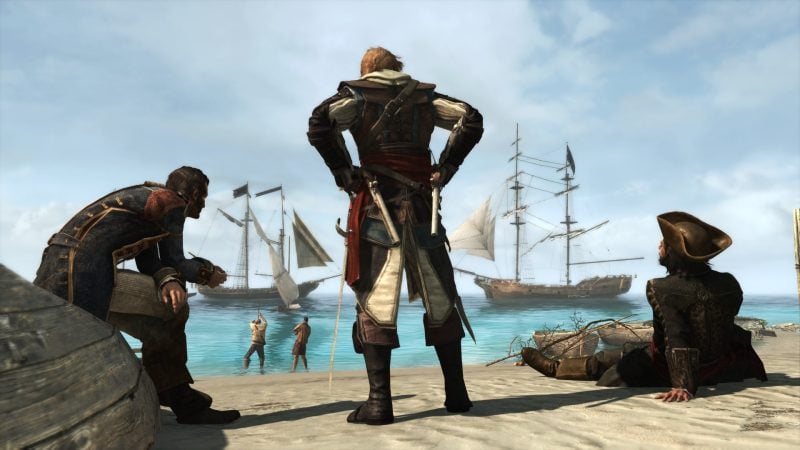
Fans of Assassin’s Creed IV: Black Flag have always been divided. It’s praised by many as the greatest game in the series, but it’s also seen as the turning point in the Assassin’s Creed history. Rather than being a covert story that revolved around the never-ending conflict between Assassins and Templars, Black Flag celebrated the independent lifestyle of pirates. Even though it was thrilling, this new path had drawbacks. The goal of Ubisoft was to give players the flexibility to go practically anywhere and start unlocking much of the side stuff early on, which slowed down the story’s progression and might have confused readers.
Significant changes in game design don’t come without consequences. Following Black Flag’s release, this tendency extended to other Ubisoft games, including Assassin’s Creed: Unity and Syndicate, as well as games from Ubisoft’s other brands, including Far Cry 5 and Watch Dogs 2. This design ethos was a double-edged sword that gave players unmatched freedom but also made supporting content largely irrelevant.
Although the reason for Black Flag’s abrupt withdrawal from well-known retailers is still unknown, the effect it had on the gaming world is known. Edward Kenway’s transformation from a self-centered pirate to a man of honor and morality is still, for many, one of the most interesting tales in the franchise. Additionally, individuals who purchased the game or the complete franchise pack during the deal can relax. The games that are already in players’ libraries are not removed, even though they may disappear from retail locations.
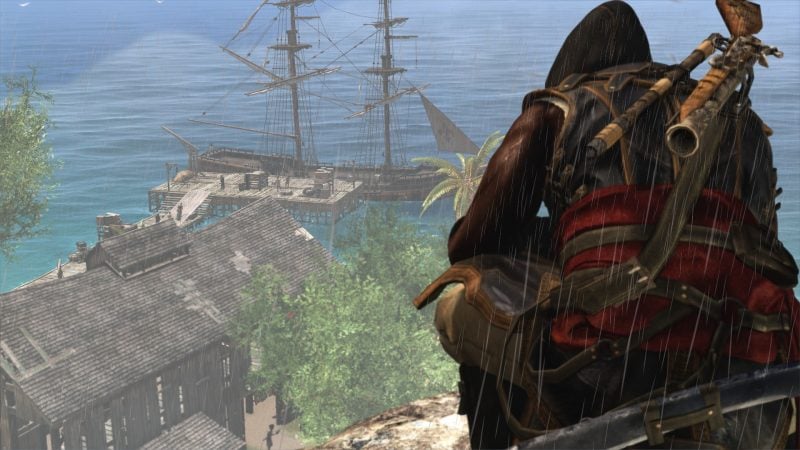
The boundaries between ownership and licensing, as well as striking a balance between player freedom and narrative depth, are difficult issues for publishers and developers in this rapidly changing digital age. These continuous discussions in the game business may have their roots in the recent events surrounding Black Flag.
Whatever the case, one thing is certain: Assassin’s Creed: Mirage’s now-earlier arrival next month is something fans can definitely look forward to.
